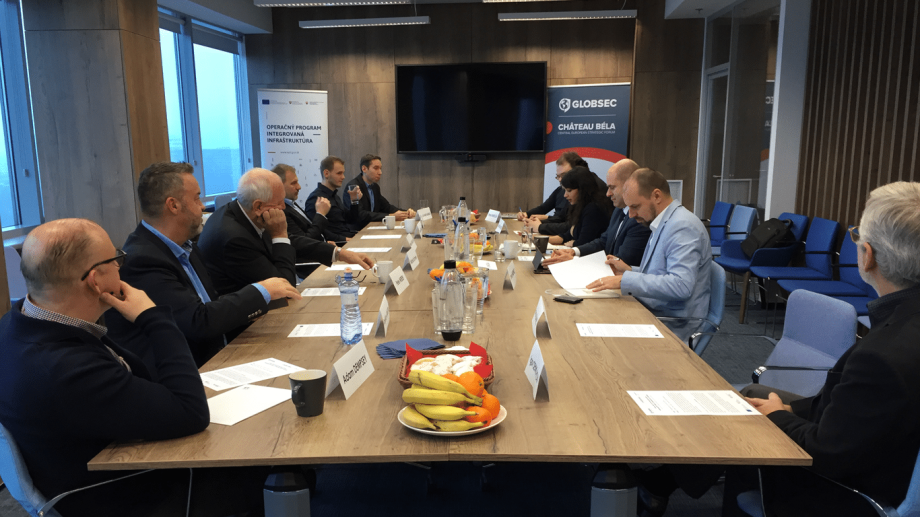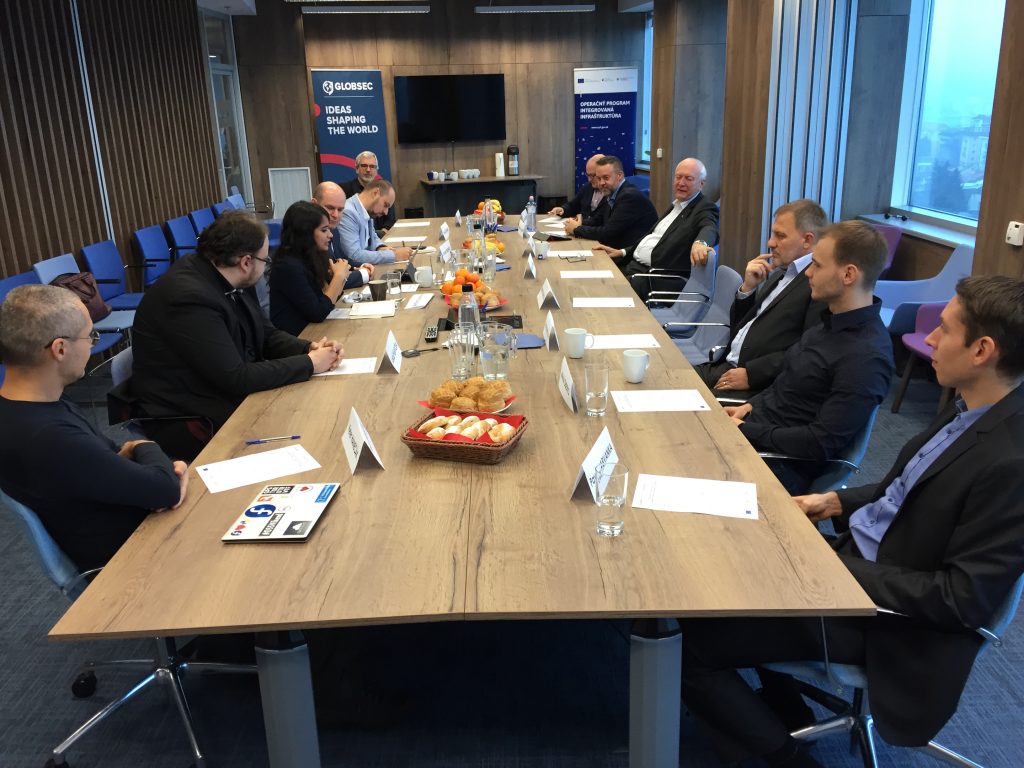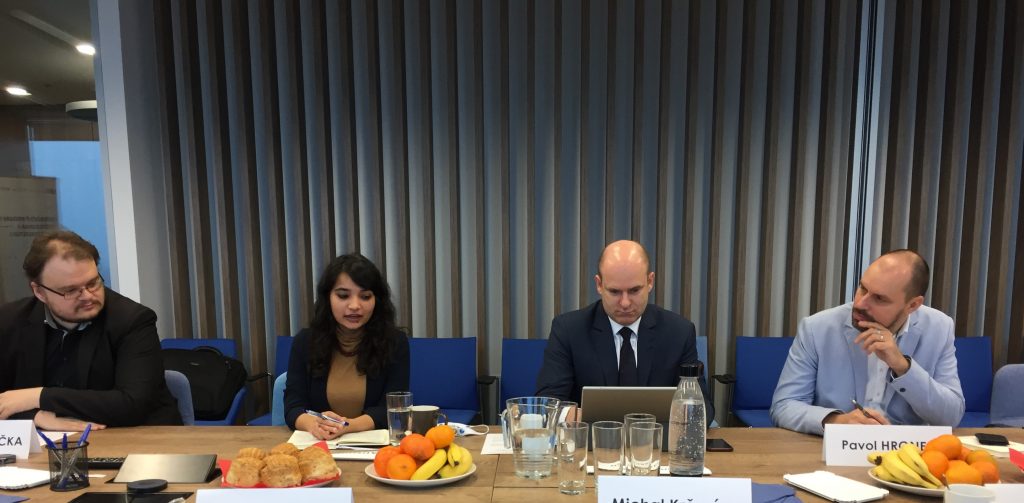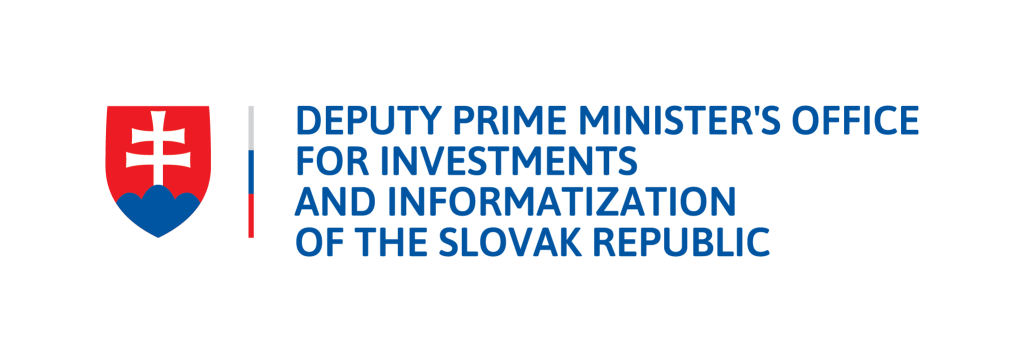Investing in Human Resources Emerges as Top Priority at GLOBSEC Chateau Bela round-table on Cybersecurity in Slovakia

On December 7, the GLOBSEC Policy Institute, in association with the Slovak Deputy Prime Minister’s Office for Investments and Informatization, organised a round-table on the state of cybersecurity in Slovakia. Held as part of the GLOBSEC Chateau Bela Forum 2018, the working round-table facilitated a dialogue between representatives of the government, private sector, technical community, and civil society with the aim of critically assessing the sphere of cybersecurity in Slovakia. The event took place at the GLOBSEC premises in Bratislava and was moderated by Head of the Cybersecurity Programme at the GLOBSEC Policy Institute, Anushka Kaushik.
The roundtable began with comments from Slovak government representatives of the Deputy Prime Minister’s Office including Jan Majtan, Lukas Hlavicka and NBU’s Rastislav Janota. They laid the main pillars within the sphere of cybersecurity in the Slovak public sector and highlighted the increasing importance of alleviating cyber threats on the global scale, as was witnessed by the French government’s Paris Call for Trust and Security in Cyberspace to which GLOBSEC is an early supporter. The significance of a certification framework for ICT products and services as a measure to enhance security was also underlined in the first half of the discussion.

An aspect that all stakeholders agreed on was the need to incentivise young Slovaks to study and work in the field of cybersecurity. Countries around the world are facing a shortage of technically skilled workers. Recent estimates indicate that Europe will face a cyber security skills workforce gap of 1.8 million by 2022. According to the European Commission’s Digital Economy and Society Index for Slovakia, the country ranks below the EU average in terms of ICT specialists with 2.9% and also for graduates holding a degree in the fields of science, technology, engineering and mathematics (STEM), with 16.6 graduates per 1 000 individuals. This is also tied to a lack of awareness about cybersecurity and low levels of digital literacy. Therefore, even though the state might be making significant strides with respect to cyber preparedness, equal emphasis needs to be placed on increasing awareness in the public and inculcating a better understanding of cyber resilience and risks.

Encouraging young women and men to pursue cybersecurity as well as making efforts to develop a cyber-aware and cyber-literate workforce would help the Slovak state in the long run in tackling cyber threats. Referring to the increasing number of cyber-attacks on the private sector and the recent malicious attempt on the Slovak Ministry of Foreign Affairs, Mr. Majtan argued against using fear and the threat of attacks as a way to increase awareness among people.
The GLOBSEC Policy Institute would like to thank its partner, the Slovak Deputy Prime Minister’s Office, as well as all the participants who provided us with valuable inputs.

